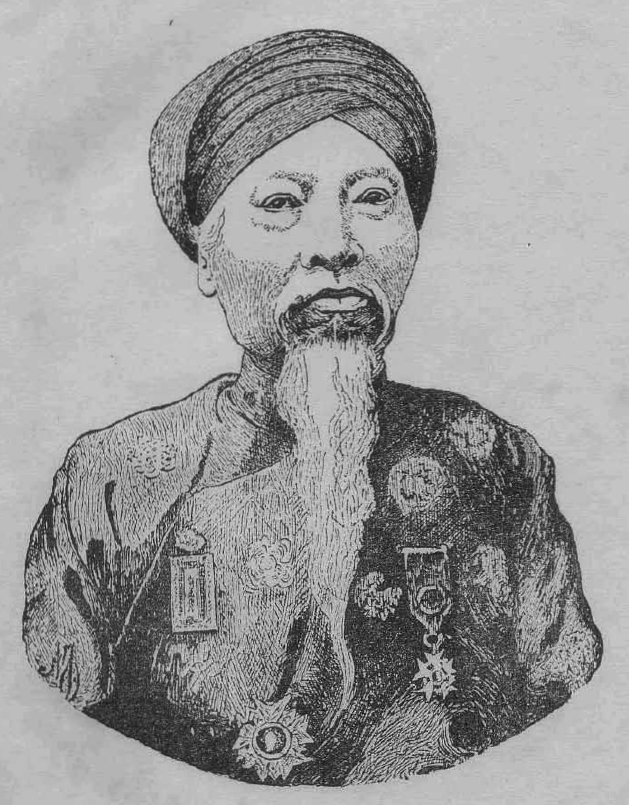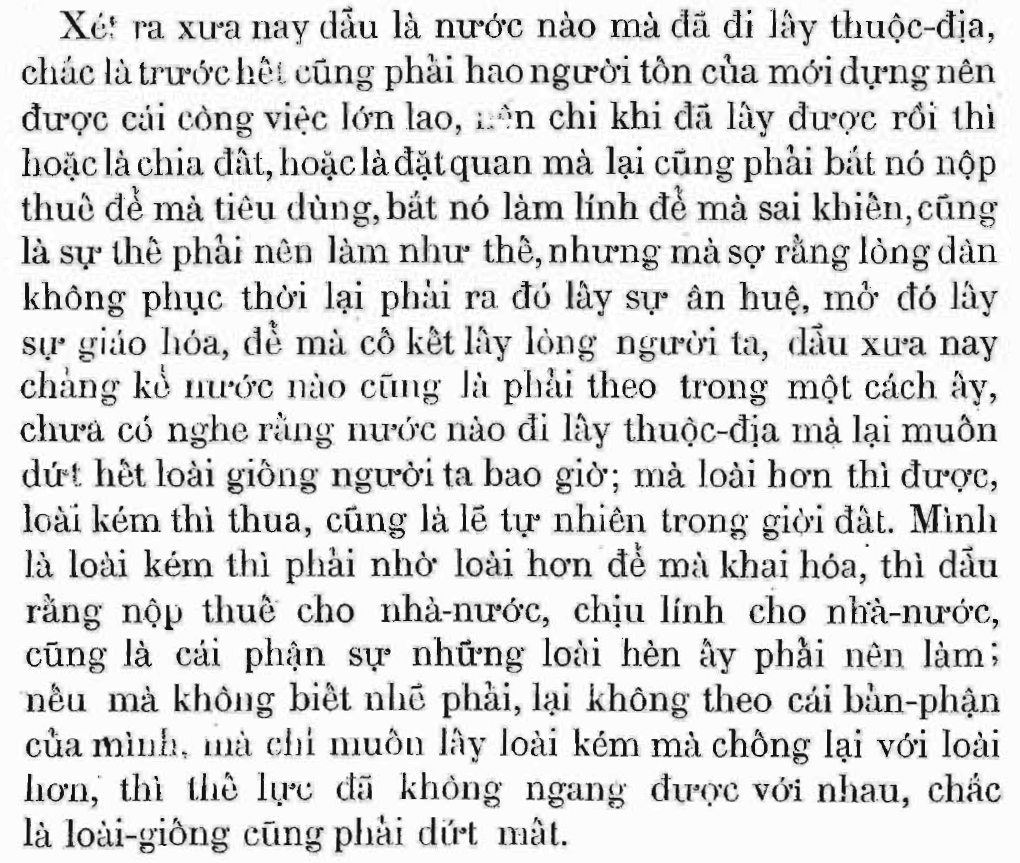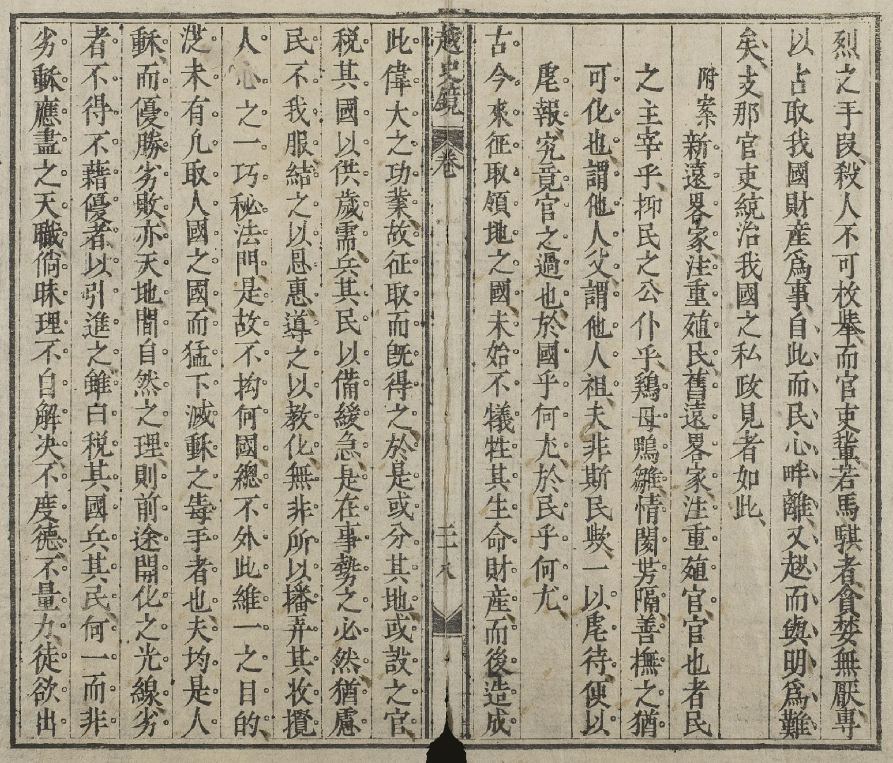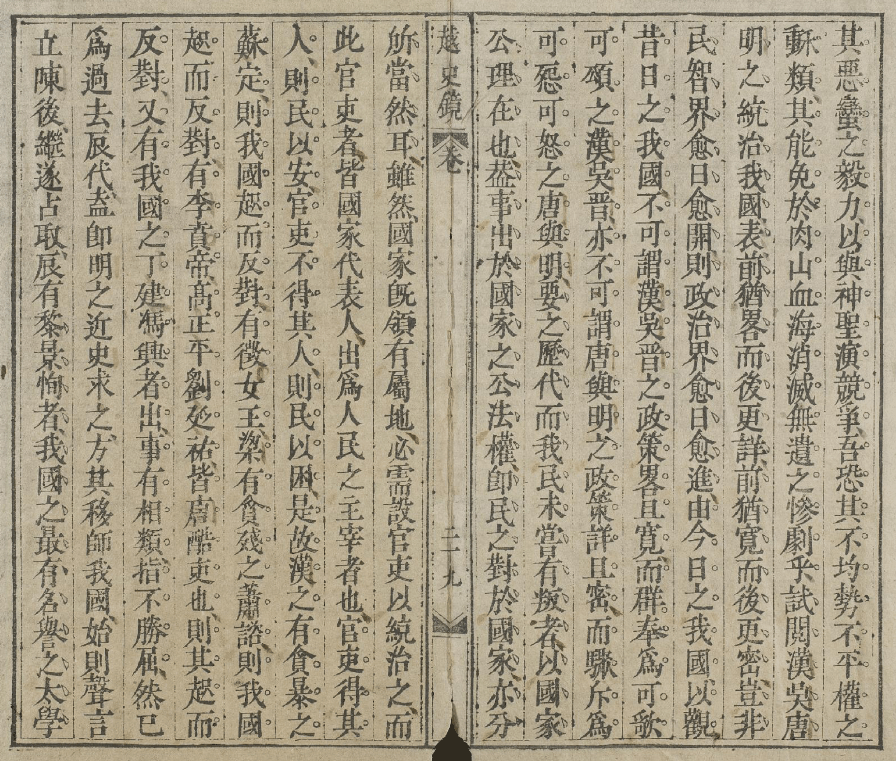The Nguyễn Dynasty official, Hoàng Cao Khải, is usually regarded today as a traitor for having assisted the French in the late nineteenth and early twentieth centuries in their conquest and rule of Vietnam.
While his political decisions can certainly be criticized, Hoàng Cao Khải does perhaps deserve some credit as a modernizer. In his writings he definitely revealed that he was someone who had adopted new ideas from the West, and was thus part of a new generation of intellectuals who began to change the way that Vietnamese think.
I was looking at a work he published in 1910 called the Mirror of Southern History (Gương sử Nam). He has a passage in that work where he talks about colonialism.
Basically what he says in this passage is that all countries that establish colonies expend people and resources in the process. Therefore, it is necessary after they establish the colony to tax the people in the colony and recruit them to serve as soldiers.
Nonetheless, colonizers fear that people will not submit to them. So they try to gain the people’s support by telling them that they should feel gratitude and by employing transformative moral teachings (giáo hóa).
According to Hoàng Cao Khải, this is the norm. In contrast, it has never been the case, he states, that a county has established a colony and then sought to exterminate the people there.
Hoàng Cao Khải then employs Social Darwinist ideas and states that it is a natural principle in the world that those who are better gain, and those who are inferior lose (loài hơn thì được, loài kém thì thua) .
When one is inferior, he continues, one has to rely on one who is better in order to develop (khai hóa). And he says further that paying taxes and serving as soldiers is the duty (phận sự) of those who are inferior.
Hoàng Cao Khải then ends by stating that if those who are inferior do not realize that this is their duty (bản phận), but instead resist (chống lại) those who are better, then given the imbalance in strength between the two, those who are inferior will likely be exterminated.
*****
Reading these comments by Hoàng Cao Khải, I have to say that I have no fondness for him as a human being or for the role that he played in history. What I do find interesting, however, is simply the fact that he used Social Darwinist ideas to make his point.
“Those who are better gain, and those who are inferior lose” is clearly a Vietnamese version of the phrase that had been used by Chinese reformers who had adopted a Social Darwinist view of the world that “the superior triumph and the inferior are defeated” (優勝劣敗).
The use of this expression (and the ideas behind it) demonstrates that by 1910 such Social Darwinist ideas were part of the way in which educated Vietnamese viewed the world. While this is something which it is easy to assume must have been the case given the importance of Social Darwinist ideas among reformers in East Asia at the time, I’ve never seen a study which clearly documents the emergence of these ideas in Vietnam.
The Mirror of Southern History was translated into Hán as the Mirror of Việt History (越史鏡). It is very interesting to compare the two texts. The information is essentially the same, but I find the Hán text to have a much stronger and more emotional tone to it, as it adds certain expressions which the Vietnamese original does not have.




This Post Has 4 Comments
Interesting read. Thank you for posting this.
Ancient Chinese seemingly agreed wholeheartedly with social darwinism .
In 中庸 Zhōng Yóng : 故 天 之 生 物, 必 因 其 材 而 篤 焉.
故 栽 者 培 之; 傾 者 覆 之 = the rising get more help , the falling are pushed aside
Or 扶 盛 , 不 扶 衰 = follow the victors , not the losers
Thanks for pointing that out!
Yea, I think it’s possible to find a line in an ancient Chinese text to explain pretty much anything, it’s just that those ideas were not necessarily central to society at that time.
There is a line in the Shangshu, for instance, that says “On those who do good are sent down a hundred blessings, and on those who do evil are sent down a hundred calamities.”
That later (like around the Song period) became a way for “Confucian” scholars to accept and modify the Buddhist idea of karmic retribution.
I didn’t mean to use ancient chinese text to explain modern social darwinism . I meant, the ancient Chinese were keen observers ; for them , even Nature practices Darwinism , it isn’t human agency alone